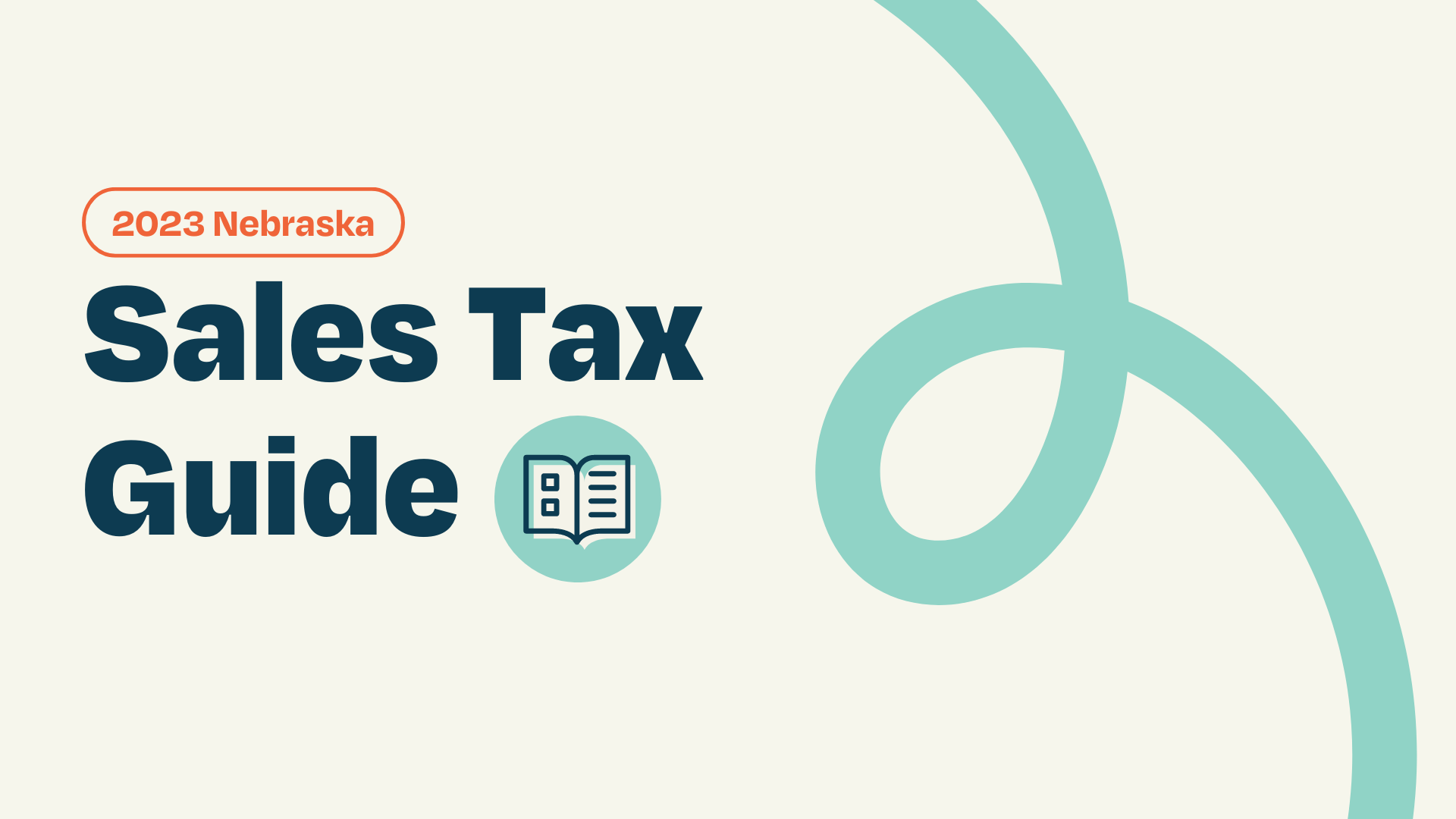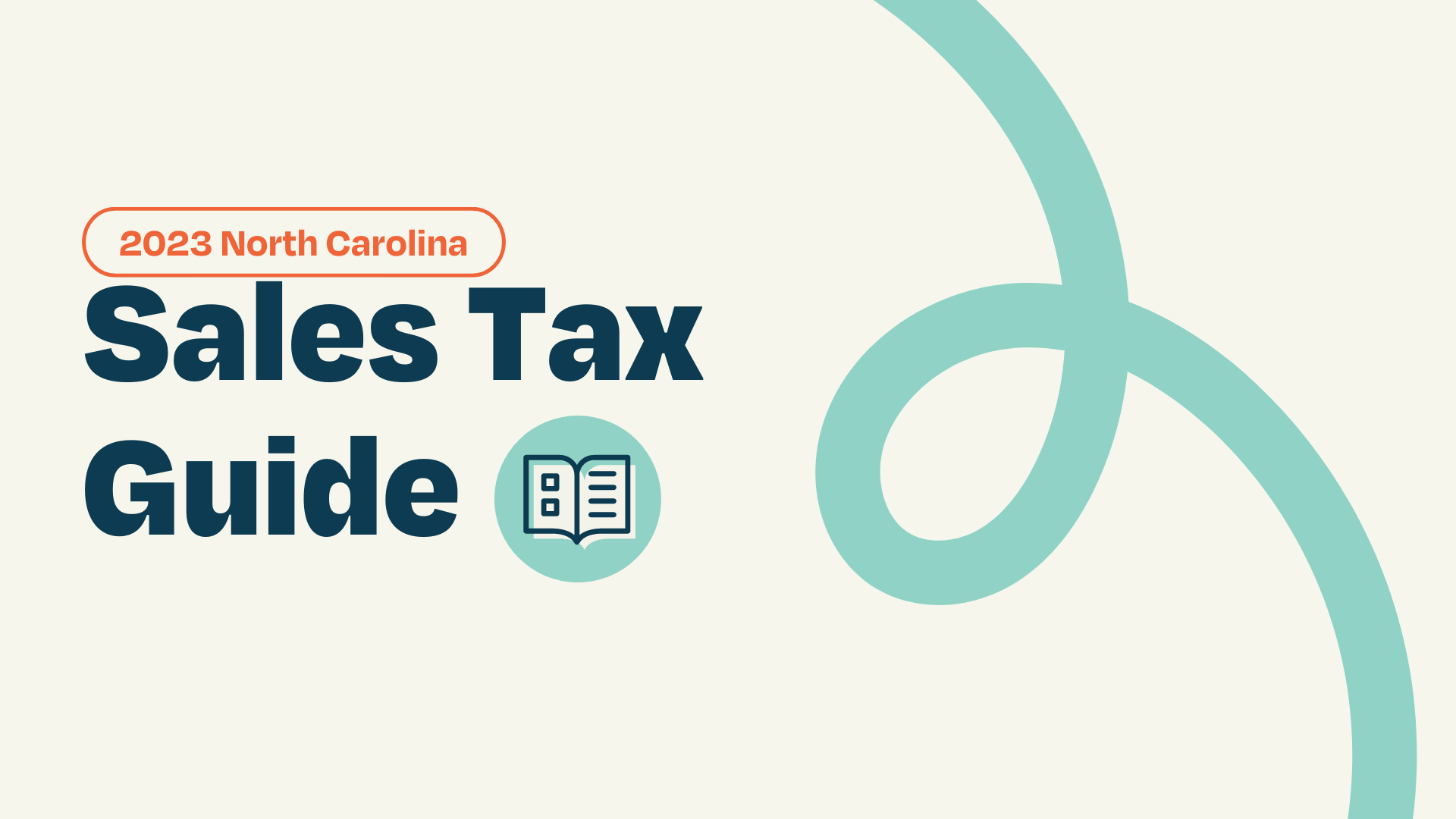1 min read
North Carolina 2023 Sales Tax Guide
North Carolina Sales Tax in a Word As a small business owner, navigating the world of sales tax can feel like a rollercoaster ride. One moment...

Welcome to the world of sales tax in Nebraska! As a small business owner, you've likely discovered that navigating the ins and outs of sales tax can be as intricate as a corn maze. But worry not, we're here to be your trusty guide, helping you through every twist and turn on your journey to sales tax compliance.
In this blog, we'll discuss everything you need to know about filing and paying sales taxes in Nebraska, from deadlines and filing frequencies to avoiding common mistakes and taking advantage of available incentives. By the end of this post, you'll be well-equipped to tackle the sales tax filing process like a pro, and your business will be one step closer to thriving in the Cornhusker State.
So, buckle up and get ready to embark on a sales tax adventure, with Accountingprose as your trusty co-pilot.
Let's dive in!
|
Table of Contents |
Navigating sales tax can be challenging, and sometimes you need to reach out to the experts for assistance. In this section, we'll provide you with information on who manages Nebraska sales tax and how to contact them.
The Nebraska Department of Revenue (DOR) is responsible for administering and enforcing the state's sales tax laws. They provide resources and assistance to help businesses understand and comply with their sales tax obligations.
|
Mailing Address |
Nebraska Department of Revenue PO Box 94818 Lincoln, NE 68509-4818 |
|
Phone Numbers |
(800) 742-7474 (toll-free in Nebraska and Iowa) (402) 471-5729 (for all other locations) |
|
|
|
|
Website |
If you have questions or need clarification regarding Nebraska sales tax, the DOR is your go-to source for accurate information. Keep in mind that it's always a good idea to consult with a tax professional or reach out to the DOR directly to ensure you're following the most up-to-date guidelines and requirements.
Before diving into the specifics of Nebraska sales tax, it's crucial to determine whether your business has nexus in the state. Nexus is a connection or presence that establishes a requirement for you to collect and remit sales tax in a particular jurisdiction.
Let's explore the various types of nexus that can apply to your business in Nebraska.
Physical nexus occurs when your business has a tangible presence in Nebraska, such as:
Owning or leasing property, including offices, warehouses, or retail stores
Employing personnel, whether full-time, part-time, or contractors
Conducting in-person sales or services, including trade shows or craft fairs
Storing inventory or using a fulfillment center in the state
If your business has any of these connections, you may have a physical nexus in Nebraska and are required to collect and remit sales tax.
Economic nexus is established when a business surpasses a certain threshold of sales or transactions within Nebraska, even without a physical presence. As of January 1, 2019, Nebraska enforces the following economic nexus threshold:
Over $100,000 in gross sales or
200 or more separate transactions within the state during a calendar year
If your business meets or exceeds this threshold, you'll need to register for a Nebraska sales tax permit and collect and remit sales tax.
Affiliate nexus arises when your business has a relationship with another entity in Nebraska that promotes, refers, or facilitates sales on your behalf. This can include:
A parent company, subsidiary, or sister company with a presence in Nebraska
A representative or agent operating in the state on your behalf
If your business has an affiliate relationship in Nebraska, you may be required to collect and remit sales tax.
Click-through nexus occurs when a business has an agreement with a Nebraska-based affiliate who refers customers to the retailer through a website link or other online means. As of the time of writing, Nebraska does not have specific click-through nexus laws. However, such arrangements may still create an affiliate nexus, as mentioned earlier.
Marketplace nexus applies to online marketplaces (like Amazon, eBay, or Etsy) that facilitate sales on behalf of third-party sellers. As of April 1, 2019, Nebraska requires marketplace facilitators with a physical presence, economic nexus, or affiliate nexus to collect and remit sales tax on behalf of their sellers. If you sell through a marketplace that collects sales tax on your behalf, you may not need to collect sales tax yourself.
Yes, Nebraska has use tax laws. Use tax is a complementary tax to sales tax and applies to purchases made outside the state for use, storage, or consumption in Nebraska. Businesses are responsible for tracking and paying use tax on taxable items or services when sales tax hasn't been collected by the seller. It's important to understand and comply with Nebraska's use tax requirements to avoid potential penalties.
Before you can start collecting sales tax in Nebraska, you'll need to register for a sales tax permit with the Nebraska Department of Revenue. In this section, we'll guide you through the registration process, discuss the associated costs, and explain any additional registration requirements.
To register for a Nebraska sales tax permit, follow these steps:
Gather the necessary information: Before you begin the registration process, ensure you have the following information handy:
Your business name, address, and contact information
Your Social Security number (SSN) or Employer Identification Number (EIN)
The legal structure of your business (sole proprietorship, partnership, corporation, etc.)
Your North American Industry Classification System (NAICS) code
The start date of your business operations in Nebraska
A description of your products or services
Your anticipated monthly sales tax collection
Complete the Nebraska Tax Application: You can register for a sales tax permit by completing the Nebraska Tax Application, Form 20 ↗, available on the Nebraska Department of Revenue website. You have the option to complete the form online or download a paper version to mail or fax.
Submit the application: If you're applying online, you can submit the completed form electronically. For paper applications, mail or fax the form to the following address:
Nebraska Department of Revenue
PO Box 98903
Lincoln, NE 68509-8903
Fax: (402) 471-5927
Wait for approval: Once the Department of Revenue processes your application, they will mail your sales tax permit and sales tax rate charts to the business address you provided. The processing time can take up to 10 business days for online applications and up to 4 weeks for paper applications.
Good news! There is no fee to register for a Nebraska sales tax permit.
Yes, you'll need a Federal Tax ID Number, also known as an Employer Identification Number (EIN), to register for a Nebraska sales tax permit. If you don't already have an EIN, you can apply for one through the IRS website.
In addition to registering for a sales tax permit, you may need to register with other state agencies, depending on your business structure and activities. Some possible agencies include:
Nebraska Secretary of State: If you're operating as a corporation, LLC, or other business entity, you'll need to register with the Nebraska Secretary of State ↗.
Nebraska Department of Labor: If you have employees, you'll need to register for unemployment insurance and workers' compensation coverage through the Nebraska Department of Labor ↗.
Nebraska Department of Economic Development: If you're seeking business incentives or assistance, you may need to work with the Nebraska Department of Economic Development ↗.
It's essential to research and comply with all relevant registration requirements to avoid potential issues and penalties.
Once you've registered for a Nebraska sales tax permit, it's time to start collecting sales tax from your customers. In this section, we'll discuss whether Nebraska is an origin or destination sales tax state, which sales are subject to sales tax, and the exemptions that may apply.
Nebraska is a destination-based sales tax state. This means that sales tax is based on the location of the buyer, not the seller. When selling taxable products or services to customers in Nebraska, you must collect sales tax at the rate applicable to the customer's location, regardless of where your business is located.
In Nebraska, sales tax applies to the sale of tangible personal property, certain services, and the lease or rental of tangible personal property. Some examples of taxable products and services include:
Appliances, electronics, and furniture
Clothing and accessories
Pre-written computer software
Motor vehicles and trailers
Repair and maintenance services
Admissions to entertainment and recreational events
Generally, SaaS is not taxable in Nebraska. The Nebraska Department of Revenue defines SaaS as "a software licensing arrangement under which a customer subscribes to access a software application hosted by a vendor." Because SaaS is not delivered in a tangible medium, it is not considered taxable.
However, there are some exceptions to this rule. For example, if SaaS is used for gaming or entertainment purposes, it may be taxable. Additionally, if SaaS includes any prewritten software that is delivered electronically, it may also be taxable.
Certain items and transactions are exempt from Nebraska sales tax, including:
Prescription drugs and certain medical supplies
Groceries and food products for home consumption
Agricultural machinery and equipment used for farming purposes
Manufacturing machinery and equipment
Newspapers and magazines
Educational and religious items and services
Some organizations and individuals may qualify for sales tax exemptions in Nebraska, including:
Nonprofit organizations, such as schools, churches, and charities
Government agencies, including federal, state, and local entities
Resellers and wholesalers with a valid Nebraska resale certificate
Manufacturers purchasing items for use in the manufacturing process
If a customer is exempt from sales tax, you should obtain a completed Nebraska Exemption Certificate, Form 13 ↗ from the customer. Keep the certificate on file to document the tax-exempt sale. Do not collect sales tax on transactions where a valid exemption certificate has been provided.
If you lose an exemption certificate, you should request a new, completed copy from the customer as soon as possible. It's essential to maintain accurate records of all tax-exempt sales to avoid potential penalties and liability for uncollected sales tax. Regularly review and update your exemption certificates to ensure they are current and valid.
Now that you're collecting sales tax, it's time to file and pay those taxes to the Nebraska Department of Revenue. In this section, we'll guide you through the process of filing and paying sales tax, as well as discuss deadlines, potential penalties, and available incentives.
The frequency at which you're required to file and pay sales tax in Nebraska depends on your tax liability. The Department of Revenue will assign one of the following filing frequencies based on your anticipated sales tax collections:
The filing frequency and dues dates are as follows:
|
Monthly Filing |
If annual tax liability is $3,000 or more. |
Due by the 20th of the following month. |
|
Quarterly Filing |
If annual tax liability is between $900 and $3,000. |
Due by the 20th of the month following the end of the quarter. |
|
Annual Filing |
If annual tax liability is less than $900. |
Due by January 20th of the following year. |
Remember to consistently file and pay by the deadlines assigned to avoid penalties and interest.
If the sales tax filing deadline falls on a weekend or holiday, the due date is extended to the next business day. Don't worry - Nebraska has your back when it comes to calendar quirks!
Filing a Nebraska sales tax return is a straightforward process. Just follow these steps:
Gather your sales records: Compile your total taxable sales and total sales tax collected for the filing period. Be sure to include any tax-exempt sales and sales tax exemptions.
Determine the local sales tax rates: Calculate the sales tax you collected for each jurisdiction, including any city, county, or special district taxes. Nebraska's Tax Rate Finder ↗ can help you with this step.
File your return: You can file your Nebraska sales tax return electronically through the Nebraska Department of Revenue's e-file system ↗. Alternatively, you can file a paper return using Form 10, the Nebraska and Local Sales and Use Tax Return. Be sure to include all the necessary information and double-check your calculations before submitting the form.
Pay your sales tax: When you file electronically, you can pay your sales tax online using the Department of Revenue's e-pay system. For paper returns, you can pay by check or money order made payable to the Nebraska Department of Revenue.
Failure to file or pay sales tax on time can result in penalties and interest charges. The penalties in Nebraska include:
Late filing penalty: 10% of the tax due or $25, whichever is greater
Late payment penalty: 5% of the unpaid tax per month, up to a maximum of 25%
Interest: Interest is assessed on the unpaid tax and accrues at a rate established by Nebraska law
Yes, Nebraska offers several sales tax incentives to encourage economic development and growth. Some of these incentives include:
Nebraska Advantage: This program provides sales tax refunds and exemptions for businesses that create jobs, invest in research and development, or undertake expansion projects in the state.
Nebraska Manufacturing: This incentive offers sales tax exemptions for manufacturing machinery and equipment, as well as a refund of sales tax paid on qualifying purchases of energy used in the manufacturing process.
Nebraska Investment: This program provides sales tax exemptions for businesses that make significant investments in Nebraska, such as constructing or expanding facilities.
To learn more about these incentives and determine your eligibility, visit the Nebraska Department of Economic Development website.
Filing sales tax returns can be a daunting task for any business owner. To help you navigate this process smoothly, we've compiled a list of five tips to avoid common mistakes when filing Nebraska sales tax returns:
Stay organized with your sales records: Maintaining accurate and organized sales records is crucial for filing sales tax returns. Keep track of all your taxable sales, tax-exempt sales, and sales tax exemptions. This will simplify the filing process and help prevent errors in your return.
Know your filing frequency: The Nebraska Department of Revenue assigns filing frequencies (monthly, quarterly, semi-annually, or annually) based on your anticipated sales tax collections. Be sure to file and pay your sales tax according to the assigned frequency to avoid penalties for late filing or payment.
Use the correct tax rate: Sales tax rates in Nebraska vary by location and include state, city, county, and special district taxes. Double-check the applicable tax rates for each jurisdiction in which you've made sales using Nebraska's Tax Rate Finder. This will ensure you collect and remit the correct amount of sales tax.
Take advantage of electronic filing: The Nebraska Department of Revenue encourages electronic filing of sales tax returns, which can help reduce errors and save time. Use the Nebraska Department of Revenue's e-file system to file your return and pay your sales tax online. Not only is it more convenient, but it also offers built-in error checking and confirmation of submission.
Stay informed about changes to tax laws and rates: Sales tax laws and rates can change from time to time. Stay up-to-date on any changes by visiting the Nebraska Department of Revenue website and signing up for their email updates. This will help you stay compliant with the latest tax requirements and avoid potential penalties.
By following these tips, you'll be better prepared to file your Nebraska sales tax returns accurately and on time, minimizing the chances of costly mistakes and penalties.
Filing sales tax returns in Nebraska may seem like a complex task, but with the right knowledge and organization, you can navigate this process with confidence. By staying on top of your sales records, understanding your filing frequency, using the correct tax rates, taking advantage of electronic filing, and staying informed about tax law changes, you'll be well-equipped to file your Nebraska sales tax returns accurately and on time.
At Accountingprose, we're here to support you every step of the way. Our team of experts is always ready to help you with your sales tax needs, ensuring your business remains compliant and successful. With our guidance and your dedication to mastering the ins and outs of Nebraska sales tax filing, you'll be well on your way to conquering the world of sales tax and focusing on what you do best: growing your business.
So, go ahead and give yourself a pat on the back for taking the time to learn about Nebraska sales tax filing. You're now better prepared to tackle this essential business task, and we're here to cheer you on!
|
Ready to work with a Nebraska sales tax expert? We've love to work with you! |
|
Alaska Sales Tax Guide (N/A) |
||||
|
Montana Sales Tax Guide (NA) |
||||
|
Oregon Sales Tax Guide (N/A) |
||||
|
Delaware Sales Tax Guide (N/A) |
||||
|
New Hampshire Sales Tax Guide (NA) |
||||
And don't forget to check out our blog about Economic Nexus, which serves as an invaluable resource for businesses who have sales that are subject to sales tax.
This blog is for informational purposes only and the information is accurate as of 2023-06-19. If you want legal advice on sales tax law for your business, please contact a State and Local Tax (SALT) professional. Keep in mind that sales tax regulations and laws are subject to change at any time. While we strive to keep our blog current, this blog possibly may be out of date by the time you review it.

1 min read
North Carolina Sales Tax in a Word As a small business owner, navigating the world of sales tax can feel like a rollercoaster ride. One moment...

Massachusetts Sales Tax in a Word Ahoy, fellow small business owners! Welcome aboard the S.S. Sales Tax Adventure, where we're setting sail on a...

Virginia Sales Tax in a Word Welcome to the wonderful world of Virginia sales tax! As a small business owner, understanding this complex...